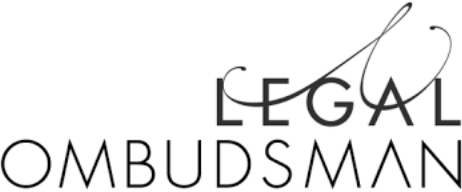How Do I Avoid an Easement Dispute?

Lawyer, Litigation

When a person needs to use or access land that is owned by another, an easement can be drafted to legally permit the person to do so.
In this article, one of our commercial property solicitors discusses why you may need an easement, how to avoid land disputes, and alternative dispute resolution if a disagreement over easements arises.
What is an Easement?
An easement is a right to make use of another's land for a specified purpose. The person who owns the land and grants the right is called the Grantor; the person who has the benefit of the right is called the Grantee.
The benefit (and the burden) of the easement can pass with the land if it is correctly drafted and registered at the Land Registry by both parties, and this is essential if it is not passed. Similarly, if the right is not intended to pass with the land but remain only for the benefit (or the burden) of the current parties, then it will need to be drafted differently.
The most common types of easements are:
- A right of way
- A right to light
- A right of support
Reasons for pursuing an easement could include the use of a shared driveway, to maintain water and drainage, or to walk across the land to access other land. An easement can also prohibit the owner from specific actions, such as certain building works that would reduce light in a neighbour's property.
Easements and Land Law
The interpretation and parameters of easements have long been issues that have been governed by the Courts, especially in relation to rights of way. There is an abundance of case law on this subject, but unsurprisingly the case law in this area can be contradictory.
If the understanding of the easement is unclear or differs between both parties, then this can lead to a dispute. It can also be a problem if someone buys a piece of land and is unaware that another person has the right to enter or use their land in accordance with an easement.
It goes without saying that parties should try to avoid the situation where the parameters of an easement are left for the Courts to decide. This is an expensive process, and as case law has shown in the past, the outcome can be uncertain.
Tips on How to Avoid an Easement Dispute
- Where an easement is being negotiated, it is the responsibility of the lawyers involved to ensure that the wording of the easement is fit for purpose. From the outset, the property solicitors should take instructions to understand the purpose of the easement, and consider the particular set of facts on a case by case basis, giving thought to any future issues that may arise.
- Although it is the responsibility of the legal advisors to adequately draft the wording, it is advisable for the Grantor and Grantee to carefully consider the matters outlined above in advance and provide clear instructions to the property solicitors involved.
- If land is being acquired that, for example, benefits from an existing right of way over third-party owned land but the wording is uncertain as to the type of use permitted, problems could arise. Consider obtaining an indemnity insurance policy to provide cover in the event that the owner of the route attempts to prevent the person with the benefit from using the route in a certain way or for a particular purpose.
- Again, if the wording of the easement is uncertain and this is foreseen as an issue, the possibility of negotiating a variation to the easement could be considered before committing to a purchase.
Our Property Law Solicitors in Essex
Our residential and commercial property law solicitors will ensure that easements are fit for purpose when land is bought or sold, and will advise you on the implications for you personally.
If you find yourself in a dispute over the parameters of an easement, our property law team will explain your legal position in straightforward language. However, if a re-negotiation or a claim arises surrounding a deed of easement, then our property litigation lawyers can offer dedicated advice.
Giles Wilson Solicitors is committed to helping resolve easement disputes in a cost-proportionate and swift manner – focussing on alternative dispute resolution and avoiding the Court's intervention wherever possible. Pop into our offices to speak with one of our expert solicitors in Leigh Broadway and Rochford, Essex.
If you require legal advice on easements or land law, get in touch with our friendly and experienced property solicitors here. Alternatively, visit our website for more information about our property services.
You can also keep up to date with Giles Wilson Solicitors and recent legal news on our Facebook and LinkedIn.



